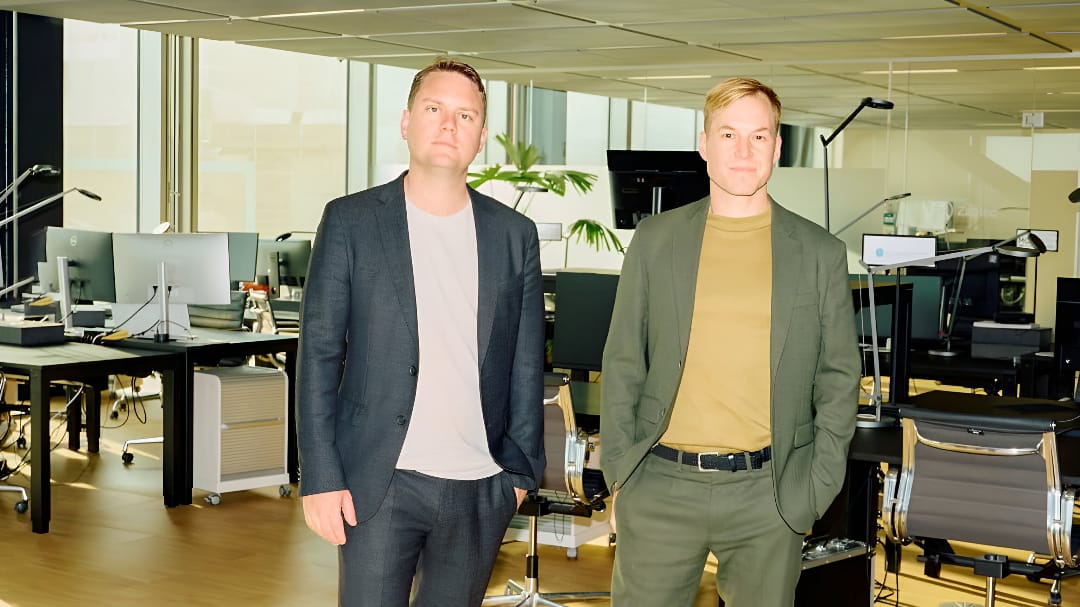Telgea Raises €2.3M to Make Telecom Global, Simple, and AI-Powered
Telgea just raised €2.3M to fix the mess of global mobile plans. One dashboard, 75 countries, zero roaming chaos. Here’s how they’re doing it.

Telgea, a Stockholm startup barely a year into its journey, has raised €2.3 million to simplify one of the most overlooked headaches in global business: telecom. The round, announced at the end of April, was led by Amigos Venture Capital with participation from Antler, SSE Ventures and Motivate Ventures. Post-money, the company sits at a valuation of €18 million.
Telecommunications is sorely needed, but isn't known for being glamorous. However, Telgea is trying to change that.
The platform lets businesses manage mobile connectivity across 75 countries under a single contract. Instead of dealing with 10 different carriers, scattered invoices, and roaming charges that sneak up like bad software bugs, Telgea offers one dashboard, local numbers, unlimited data, and automated compliance updates. It’s a mobile plan that works like a SaaS tool.
Telgea isn’t the only one trying to fix the mess of global mobile plans, but most of the others are either too narrow or too bloated to get it right. Legacy giants like Thales and G+D focus on provisioning infrastructure for telcos, not building usable tools for modern businesses. 1Global comes closer, offering enterprise eSIM plans in nearly 200 countries, but its integration-heavy, carrier-first model still feels like yesterday’s enterprise software.
On the other end, travel-focused eSIM apps like Airalo and Fonus are slick for vacationers but useless when it comes to compliance, invoicing, or managing teams across multiple markets. That leaves a space wide open for something in the middle, an actual telecom OS built like SaaS with plug-and-play integrations, a single contract, and automation where it counts. Telgea’s betting that gap is big enough to build a business on. So far, the math seems to checks out.
Since its launch in 2024, the company has seen 400% year-over-year growth and expanded into eight markets. The product has caught on with distributed teams and cross-border operations, especially in industries like logistics, fintech, and consulting. Telgea says it already hit $1 million in ARR just six months in, and claims a 92% retention rate among Nordic enterprise clients. A recent Forrester study commissioned by the company says customers are seeing an average 37% cost reduction compared to traditional mobile plans.
Behind the scenes, there’s a surprisingly lean setup. The team operates with just €2.7 million in funding raised to date. The founders Andreas Åfeldt Franke and Theis Jensen are both serial operators. Franke helped scale e-commerce infra company Tipser to a €440 million valuation and led finance for Bolt’s EMEA expansion across 40 countries. Jensen exited Danish MedTech startup Sani Nudge to a US private equity firm in 2023 and previously built IoT infrastructure in 16 countries.
Their bet is that mobile telecom, once considered a commodity service, is now a critical layer in how businesses operate globally. Compliance requirements, hybrid work setups, and increasing demand for zero-touch onboarding have turned what used to be a back-office chore into something worth rethinking. Telgea wraps all of it into a software interface: data, local phone numbers, employee onboarding, compliance workflows. One of the company’s newer features, an AI-powered virtual receptionist, now handles the vast majority of support queries without human intervention. The predictive billing engine that sits under the hood claims near-perfect invoice accuracy.
It’s also leaning hard into developer tools. Telgea ships with an API-first architecture, built for embedding into enterprise workflows. There are prebuilt integrations for platforms like Workday and Salesforce, and the company says it’s shipping new ones monthly as it expands into France, Germany, and the Benelux region. The roadmap includes embedded insurance for lost devices, AI-based network optimization, and geopolitical risk scoring for global telecom operations.
Investors are buying into the vision. Motivate Ventures' David Wieland, one of the backers in the round, claims "Telgea is breaking down global telecom barriers by fully automating what was once a manual, resource-heavy industry. This is the kind of execution that builds billion-dollar companies," and hints that the company could be a prime acquisition target for players like Twilio or Cloudflare by 2026.
Stockholm, for its part, has given Telgea a solid foundation a good proportion of its engineering team coming from Ericsson and Telia. The company is also one of the early players experimenting with EU-level AI compliance sandboxes and automated VAT handling across 45 jurisdictions.
In a world where work, hiring, and services are more global than ever, the infrastructure behind them is still catching up. Telgea sees itself as the operating layer for borderless telecom, an unglamorous but fundamental piece of the puzzle. If it works, it won’t just save companies money. It might actually make them feel like they’re operating in one seamless market instead of fifty fragmented ones. That’s not a flashy pitch. But it’s one that makes sense the minute you have to ship a laptop and SIM to a new hire in São Paulo, Berlin, and Nairobi in the same week.

